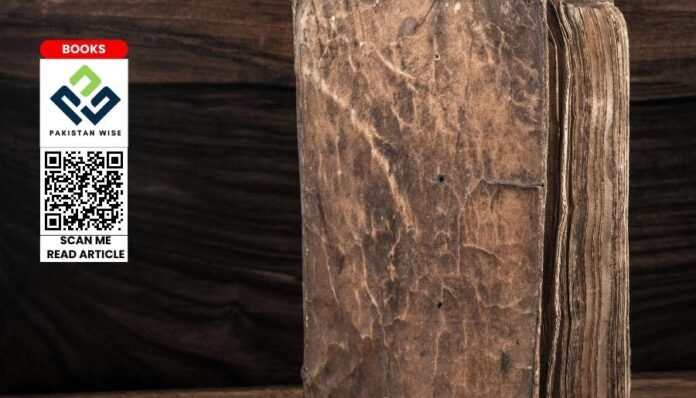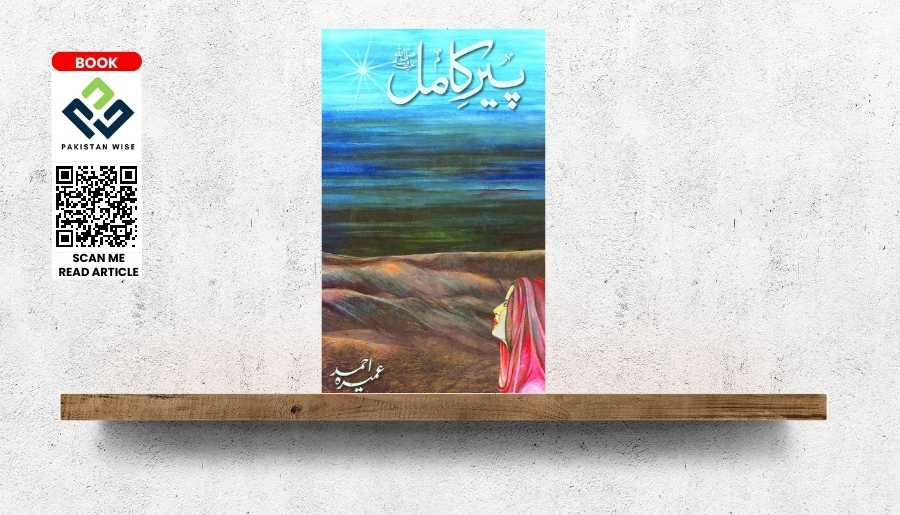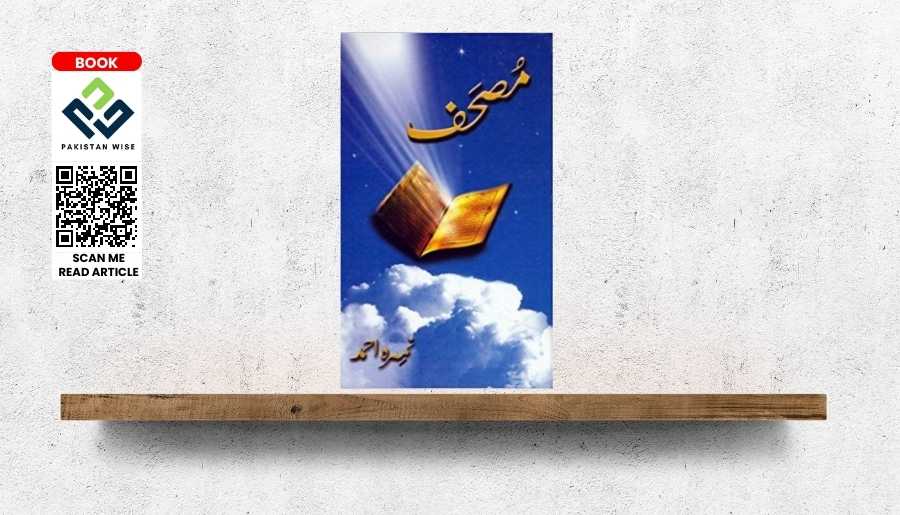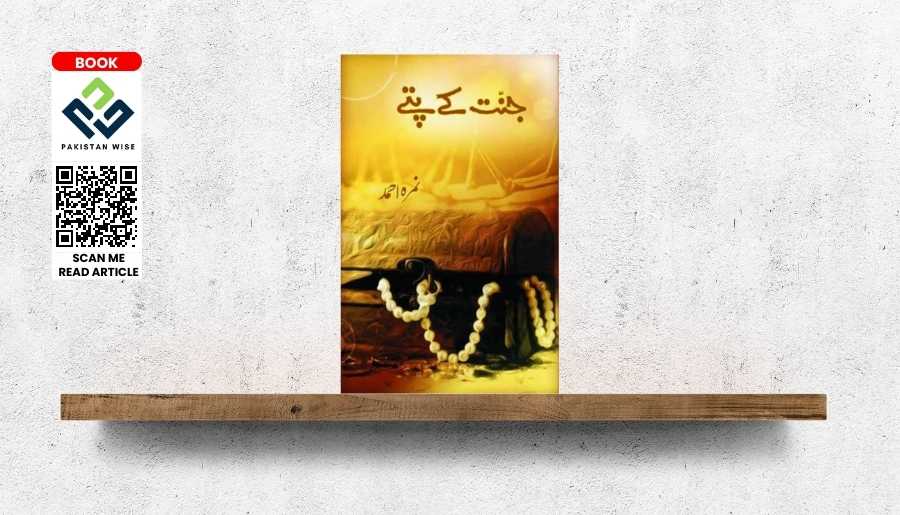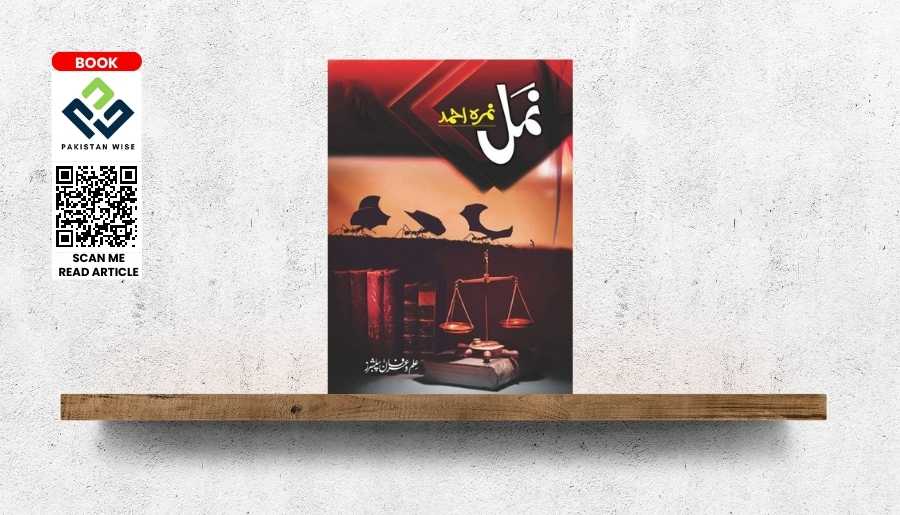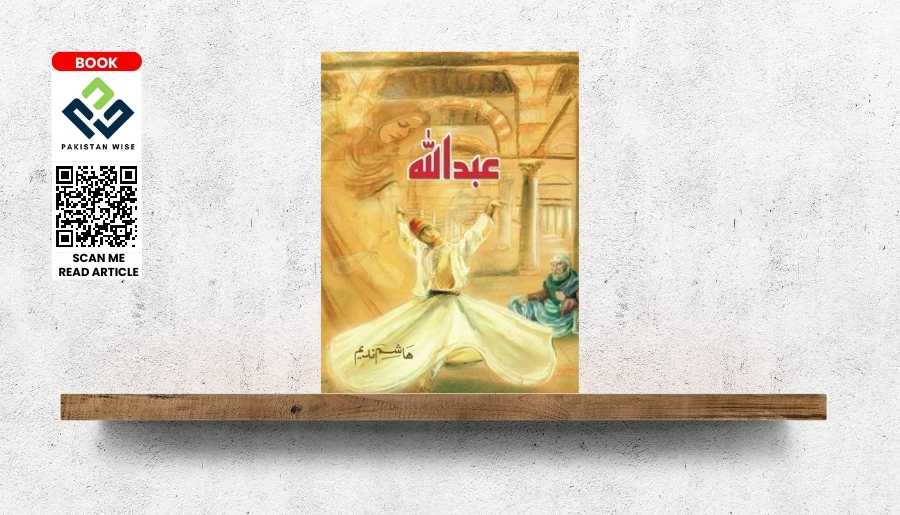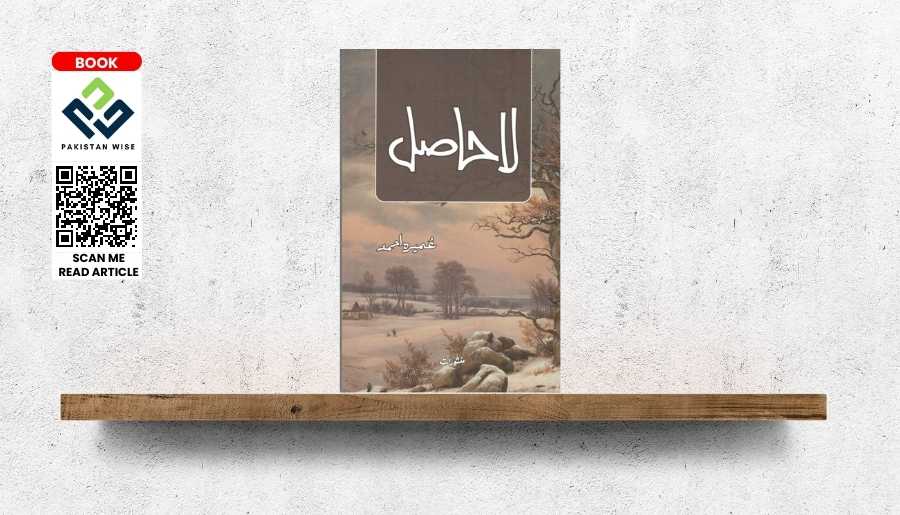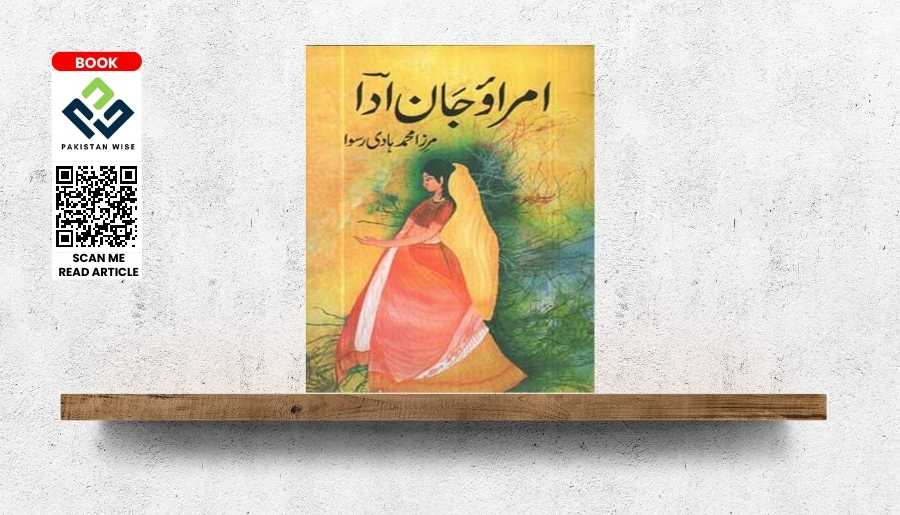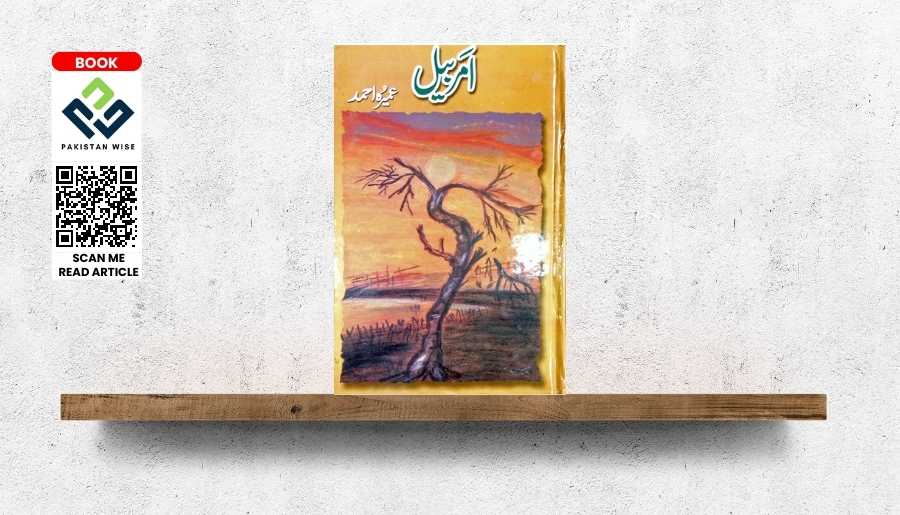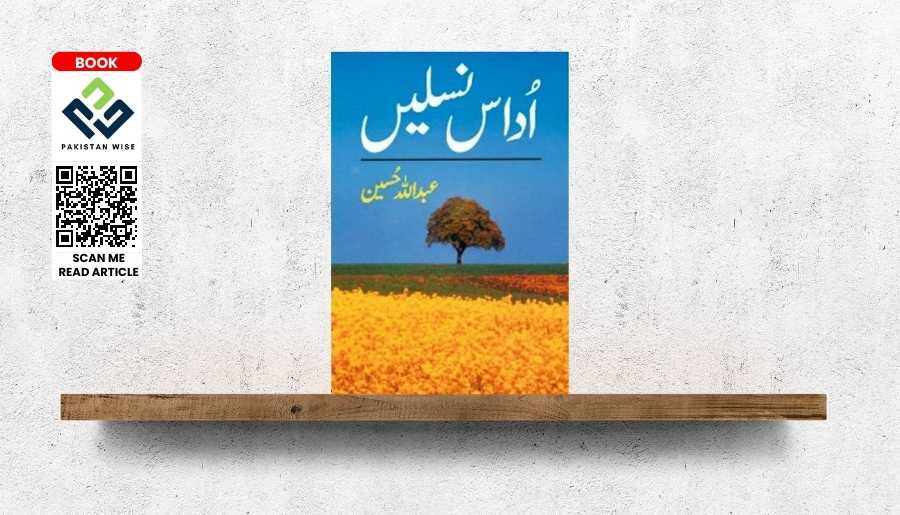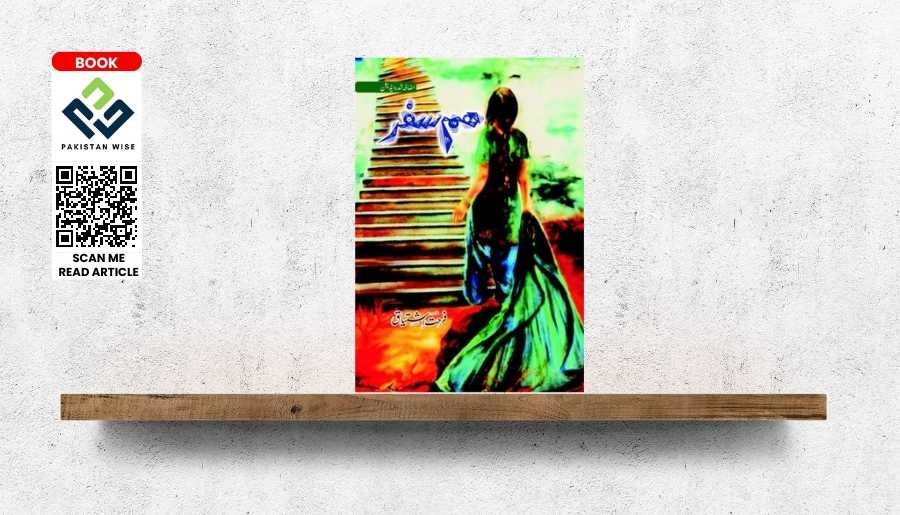Delve into a world of captivating Urdu novels! Explore a curated selection that promises to satiate your literary appetite. Within these pages, discover a collection of exceptional Urdu novels that capture the essence of Pakistan’s rich literary tradition. The Urdu novel stands as a cherished art form within Pakistan, boasting creations by numerous esteemed writers. These masterpieces transcend time, offering readers a gateway to learning and profound insight. The beauty of the best Urdu novels lies in their ability to forge a deep connection with their audience. In the midst of life’s routine, immerse yourself in the sheer pleasure of reading.
Best Urdu Novels List
This list unveils the finest Urdu novels, inviting readers to lose themselves within their compelling narratives.
Peer-e-Kamil by Umera Ahmed
Peer-e-Kamil, authored by Umera Ahmed, stands as an Urdu literary gem, captivating readers worldwide since its publication in Shuaa Digest in 2004. Its compelling narrative draws attention to Imama Hashmi and Salaar Sikandar, navigating a tale entrenched in societal sects that challenge the belief in the finality of the Prophet (PBUH). Ahmed skillfully unveils the poignant odyssey of these two disparate souls. Salaar, an intellectual prodigy grappling with existential quandaries, contrasts sharply with Imama Hashmi’s character. Her portrayal embodies a stark divergence in their spiritual inclinations. Fate intervenes, entwining their paths, leading Salaar to fall deeply in love with Imama Hashmi, catalyzing an irreversible shift in their lives.
Mushaf by Nemrah Ahmed
Nimra Ahmed, an acclaimed author, offers captivating stories that enthrall her audience. Among her compelling works stands “MUSHAF,” titled after the Arabic word for the Quran.
The narrative centers on Mehmal Ibrahim, a young orphaned girl navigating life under the guardianship of her uncles and aunts following her father’s demise. Despite their harsh treatment, Mehmal endures it all for her mother’s sake, harboring feelings of frustration, anger, and ingratitude.
Her life takes a turn when she encounters a girl holding a mysterious book cloaked in black. Revealed as the Quran, this book promises solutions to life’s myriad challenges upon inquiry. Its discovery becomes a pivotal moment, altering Mehmal’s trajectory significantly.
Throughout the novel, readers embark on an emotional rollercoaster, experiencing spiritual and religious awakenings alongside Mehmal’s transformative journey. Nemrah Ahmed skillfully weaves together these elements, crafting a literary masterpiece that resonates deeply with its audience.
Jannat kay Pattay by Nemrah Ahmed
Jannat k Pattay, Nemrah Ahmed’s most acclaimed novel, intricately weaves together romance, suspense, and mystery into a compelling narrative. At its core, the story orbits around the lives of two central characters: the enchanting Haya and the enigmatic Jahan Sikander. However, beyond the surface, the tale delves deep into Haya’s spiritual journey. Initially perceived as a modern and beautiful girl, Haya undergoes a transformative experience, embracing the hijab amidst familial resistance. Her discernment of societal realities and the true nature of certain individuals shapes her evolution. Throughout the novel, emotions surge from page to page, crafting an enthralling storyline. The enigmatic plot gains further depth through a profound spiritual undertone—a hallmark of Nemrah Ahmed’s literary prowess, evident across her body of work.
Namal by Nemrah Ahmed
Namal, a compelling Urdu novel, delves into the thematic undercurrents of Quran Surah ‘Namal’—the significance behind the name meaning ants—a metaphor for society’s perceived weakest members. The narrative intricately weaves around a murder mystery, shining a stark light on the corrupting influence of money in society. At its core, the story follows Faris Ghazi, an intelligence officer wrongly accused of murdering his step-brother and wife. However, the truth reveals a web of treacherous deceit where Ghazi isn’t the actual perpetrator.
Nemeth Ahmed masterfully crafts a narrative entwined with the shades of human complexity, portraying characters in nuanced shades of grey. Her ability to blend a gripping murder mystery with themes of religious awakening resonates deeply with readers, adding depth and resonance to her storytelling.
Abdullah by Hashim Nadeem
Abdullah’s transformation from Ishq-e-Majazi to Ishq-e-Haqeeqi is the central theme of this spiritual narrative. Sahir, later known as Abdullah, undergoes a profound change in his life after experiencing a deep love for Zohra. This tale delves into Sufiism, unraveling the essence of love beyond its conventional interpretation. Despite hailing from a progressive family that views prayer as unfamiliar, Abdullah forsakes comfort to seek purpose. It elucidates that love transcends mere physical connection; it intertwines souls. The novel intricately weaves Abdullah’s diverse spiritual expeditions, making it an essential read for seekers.
La-Hasil by Umera Ahmed
La-Hasil, a captivating gem in Urdu literature, resonates deeply with aficionados of novels. Unfolding the journey of a young girl, it delves into the trials she confronts, forging a path fraught with adversity. Despite the tumultuous turns leading her to a life as a call girl, her essence remains untainted by these circumstances. This literary masterpiece unravels the stark truths embedded within our society and human existence. It serves as a poignant testament to the insatiable nature of desires, revealing that they fail to satiate the yearnings of the soul. Umera Ahmed’s narrative is a must-read, offering profound insights into the human experience.”
Umrao Jan Ada by Mir Hadi Ruswa
Mir Hadi Ruswa’s timeless novel unveils the gripping tale of Amiran, ensnared in a web of abduction orchestrated by Dilawar Khan, ultimately finding herself traded in the vibrant city of Lucknow. Within this narrative lies a profound exploration of the societal and ethical dualities that pervade our world.
Amiran’s transformation into the renowned courtesan ‘Umrao Jaan Ada’ following her sale captivates the city of Lucknow, her allure and charisma becoming legendary. Beyond her enchanting beauty, Umrao Jaan Ada astonishes audiences with her multifaceted talents as a poet, dancer, and vocalist. Her journey paints a portrait of resilience amid the complexities of her circumstances.
Mirat ul Uroos by Deputy Nazeer Ahmed
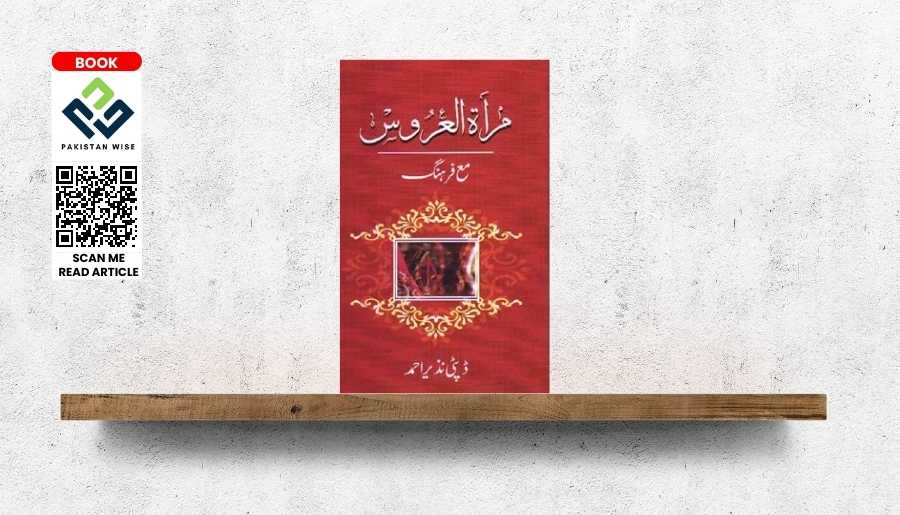
In Nazeer Ahmed’s captivating novel, “Mirat ul Uroos,” the narrative delves into the lives of two central figures, Akbari and Asgari, alongside their grandchildren. A stark contrast is drawn between the personalities of Akbari’s granddaughter, brought up with affection yet bearing an air of arrogance, and Asgari’s granddaughter, depicted as the antithesis of her counterpart. Intriguingly, both their grandsons find themselves enamored with these women and eventually tie the knot. Amidst the intricate storyline, the novel unravels the weighty choices the characters face—navigating between the realms of forgiveness and unwavering faith.
Amar Bail by Umera Ahmed
Umera Ahmed weaves another compelling narrative in Amar Bail, delving into the intricate love tale of Umar Jehangir and Aleezay Sikandar. Umar, stemming from a lineage tainted with corruption in the bureaucratic realm, encounters Aleezay, who navigates life as a product of a fractured family, finding solace with her maternal guardians.
Within this narrative, the novel unravels the intricate tapestry of Pakistan’s bureaucratic landscape and the reverberations of shattered familial foundations. Beyond the romantic narrative of Umer and Aleezay, it unveils a canvas depicting societal cravings for dominance, the haunting specter of insecurity, the art of sacrifice, fractured family dynamics, and the imbalance inherent in relationships.
Umera Ahmed artfully spotlights prevalent social maladies like nepotism, corruption’s pervasive influence, the authoritative grip of power, and the grim cloak of injustice. This engrossing novel found its publication in Shuaa Digest, captivating readers across episodes from March 2000 to March 2003.
Udaas Naslain by Abdullah Hussain
Abdullah Hussain’s remarkable Urdu novel beckons all to delve into its pages. Split into three compelling parts, it weaves a tapestry of narratives spanning the era of the British Raj, the fervor of India’s struggle for independence, and the poignant partition. Central to the tale are the intertwined lives of three Muslim families: the influential Roshan agha, and the humble yet resilient households of Niaz Baig and Ayaz Baig nestled in the village of Roshanpur. Niaz Baig’s son, Naeem, embarks on a journey into the military with the outbreak of the First World War. Upon his return, stirred by the injustices faced by Roshanpur, he finds himself drawn into the realm of politics, seeking to right the wrongs that have befallen his community.
Hamsafar by Farhat Ishtiaq
Farhat Ishtiaq’s acclaimed novel ‘Hamsafar’ stands as a pinnacle among Urdu literature in Pakistan, captivating readers with its poignant narrative. Its adaptation into a popular drama under the same title further amplified its reach. The tale intricately unfolds the destructive impacts of selfishness, ego, and misunderstandings, laying bare the fragility of relationships and families.
At its core, ‘Hamsafar’ revolves around the lives of Third, Asher, and Harem. Third, the pivotal character and sole offspring were raised solely by her mother after the demise of her father. The tranquility of Khird’s world is shattered when she receives the devastating news of her mother’s terminal cancer diagnosis.
This literary masterpiece is a mosaic of unexpected turns, notably marked by Khird’s marriage to Asher, her uncle’s son. Despite facing myriad adversities, their journey is defined by resilience and unwavering perseverance. ‘Hamsafar’ becomes an emotional roller coaster, evoking a compelling urge for readers to delve into its profound depths.
Aangan by Khadija Mastoor
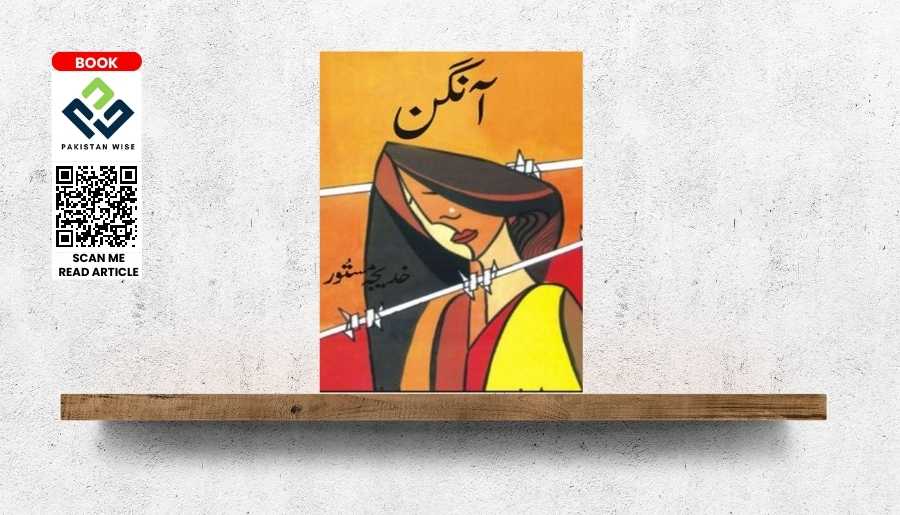
Khadija Mastoor’s celebrated masterpiece, “Aangan,” unveiled its literary prowess in 1962 and has since transcended linguistic barriers, now available in over 13 languages. This poignant narrative skillfully delves into the intricacies of India’s partition, offering a compelling storyline interwoven with the backdrop of the Independence movement and political upheavals.
Within its pages, the lives of Chammi, Alia, and Jamil, scions of a prosperous family, unfold with striking depth. The novel artfully highlights the pivotal role of women in nurturing the fabric of a home, amidst the turbulent political landscape shaping their existence.
The familial saga poignantly reflects the profound impact of the nation’s political turmoil on their once-thriving household. With the demise of their patriarch, the sale of the ancestral mansion marks the onset of their decline. This compelling narrative stands as a testament to Khadija Mastoor’s narrative prowess, inviting readers to immerse themselves in its captivating tale.

